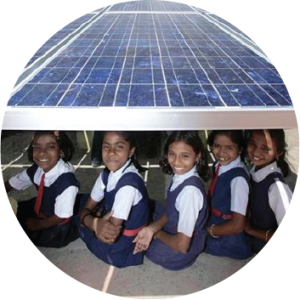[program]
[intro]
Gender inequality in education is a persistent problem in Indian society, especially for girls from rural areas and lower socioeconomic backgrounds. This course will focus on gender equality in India as it relates to global Sustainable Development Goal #4—ensuring inclusive and quality education for all by 2030.
Apply Now
Application Deadline: TBD
Commitment Fee Deadline: TBD
[/intro]
Course Description
The course will focus on gender equity in education in India as it relates to the Sustainable Development Goals (SDG). On September 25, 2015, world nations adopted a set of goals to end poverty, protect the planet, and ensure prosperity for all as part of a new sustainable development agenda. Each goal has specific targets to be achieved over the next 15 years. Goal #4—Quality Education—is designed to ensure inclusive and quality education for all by 2030. One of the targets for goal #4 is to:
“ensure that all learners acquire the knowledge and skills needed to promote sustainable development, including, among others: education for sustainable development and sustainable lifestyles, human rights, gender equality, promotion of a culture of peace and non-violence, global citizenship and an appreciation of cultural diversity and cultures contributions to sustainable development.”
[solidbox]
Program Information
Course: WGS 350/HON 270 : Gender Equity in Education: Leadership and International Community Engaged Learning in India
Liberal Learning: Gender; Global
Dates:January 3-16, 2022
Program Directors: Dr. Marla Jaksch, Associate Professor of Women’s and Gender Studies, & Deborah Hutton, Professor of Art History
Eligibility: No prerequisites and no language requirements. Open to all students in good academic standing (including current first-year students).
Program Fee:TBD 2020 Fees: $3,813.61. View Budget Sheet or explore scholarship opportunities.
[/solidbox]
Highlights
- American Institute of Indian Studies tour & lecture
- Uthaan (Sustainable Eduction) visit
- Numerous guest lecturers
- Harshat Mata Temple in Abhaneri
- School Solar Project at a girls’ school
- Tea preparation and regional cooking lessons
- Agra Fort
- Taj Mahal
- Tour of Ambedkar University of Agra
Questions?
Please contact the TCNJ Center for Global Engagement at cge@tcnj.edu, 609-771-2596.
For course specific questions, please contact Marla Jaksch at jakschm@tcnj.edu or Deborah Hutton at dhutton@tcnj.edu.
Please review our refund, cancellation, and withdrawal policy statement should a student not be able to participate in the program.
[/program]
[vspace50]

